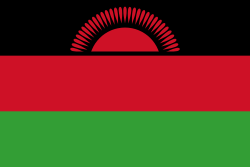| Native name | Gule wa Fwemba |
|---|---|
| Etymology | Dance as if a warrior |
| Genre | Traditional dance |
| Instrument(s) | Drums, etc |
| Inventor | Tumbuka people |
| Year | c.1925 AD |
| Origin | Eastern Zambia |
| Related dances | Vimbuza, Mganda, Mapenenga |
| This article is part of a series on the |
| History of the Tumbuka people |
|---|
 |
Fwemba is a ritualistic and expressive dance performed by the Tumbuka people in Eastern Zambia, particularly in districts such as Lundazi, Chasefu, and Lumezi, as well as Chama in Muchinga Province. The dance features energetic and martial movements that convey both community celebration and resistance. The Chitumbuka word term Fwemba is tied to its dual role as both a victory dance and a form of protest. [1]